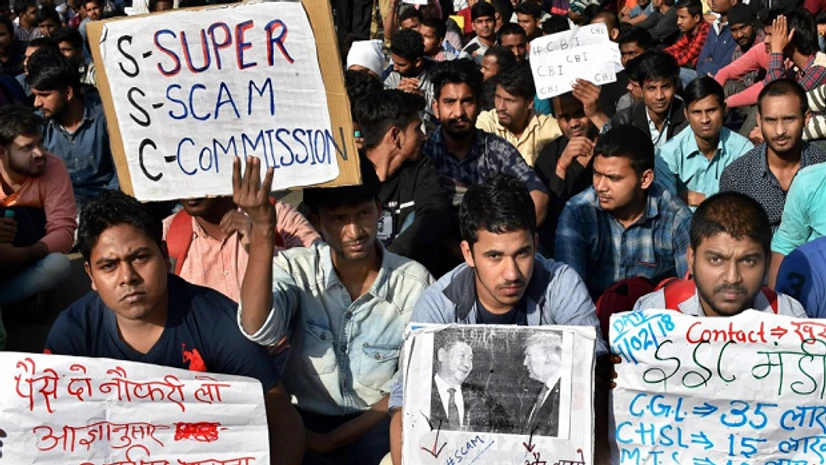In yet another dent to the credibility of public recruitment exams in India, candidates appearing for the SSC Phase-13 examination in Indore were left fuming as servers at the exam center — managed by Eduquity — crashed mid-test. Students reported that the computer systems shut down for around 10–15 minutes during the examination, triggering confusion and delays.
The incident escalated quickly outside the Malwa Kanya Vidyalaya exam center, where students protested the disruption and the absence of a timely redressal mechanism. Despite repeated complaints, candidates claimed they were met with indifference from the center staff. The disruption led to commotion lasting until 10:30 PM, with even the police and administrative officials having to intervene.
Eduquity’s Track Record Under Fire Once Again
The latest controversy adds to the growing list of allegations against Eduquity Career Technologies, a Bengaluru-based firm that has handled numerous state and national-level recruitment exams — many of them mired in controversies. In the past, the firm has been accused of mishandling the MP Patwari exam, involvement in paper leaks during teacher eligibility tests, and even subcontracting duties while accepting commissions.
Eduquity had previously been blacklisted by the Directorate General of Training (DGT) before returning to conduct exams like the MP Patwari recruitment in 2023, which again attracted complaints of malpractice. The same company was also contracted by NTA and Maharashtra’s CET cell, both of which saw serious allegations ranging from technical glitches to paper leaks.
Low Bidding Raises Questions About Tendering Practices
At the heart of the SSC controversy lies a deeper issue: cost-cutting in public tender processes. Eduquity reportedly secured the SSC contract by quoting a rate of ₹220 per student, significantly lower than competitors like TCS, whose rate was around ₹350. While this economical approach may have appealed to the authorities, it raises red flags about quality compromise in crucial government recruitment exams.
Critics argue that awarding contracts solely based on cost rather than experience and reliability has jeopardized exam integrity. Eduquity’s growing portfolio, despite its problematic track record, is now under intense scrutiny.
Future of National Exams in Jeopardy?
With Eduquity involved in upcoming examinations for central departments and institutions, candidates and activists alike are voicing concerns about the potential repeat of these technical and ethical failures. Organizations like the National Educated Youth Union (NEYU) have already filed complaints and informed authorities about Eduquity’s recurring lapses.
As lakhs of aspirants prepare for life-altering recruitment processes, the recurring technical failures, unanswered complaints, and questionable contract awards have shaken public trust. Unless regulatory bodies act decisively, India’s examination ecosystem risks being permanently compromised by repeat offenders operating under cost-driven incentives.



